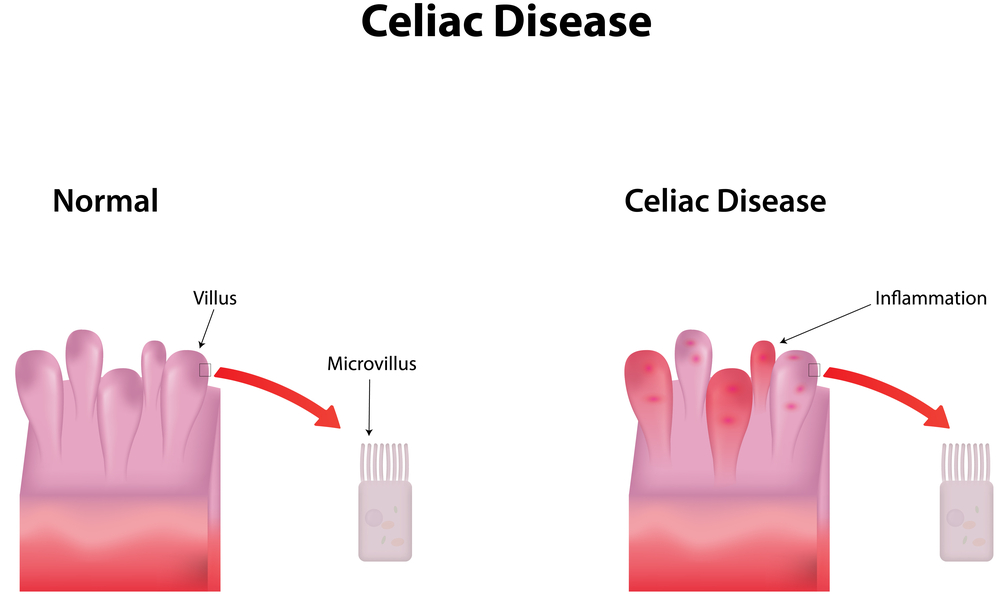First-degree Relatives And Spouses of Celiac Disease Patients At Higher Risk Of Autoimmune Diseases
Written by |

In a recent study entitled “Autoimmune Disease in First-Degree Relatives and Spouses of Individuals With Celiac Disease” researchers show that first-degree relatives and spouses of individuals with celiac disease have an increased risk of suffering from other type of autoimmune diseases, such as systemic lupus erythematosus. The study was published in the journal Clinical Gastroenterology and Hepatology.
Celiac disease is an autoimmune disorder characterized by damages to the small intestine as a result of gluten (a protein found in wheat, rye and barley) ingestion.
While it is increasingly recognized that first-degree relatives of individuals with celiac disease have a higher risk of developing this disorder, it is currently unknown whether their increased risk is generalized to other autoimmune disorder,s as Louise Emilsson, MD, PhD, at Oslo University and study corresponding author noted, “The prevalence of celiac disease is about 10% in first-degree relatives of celiac patients compared to about 1% in the general population. …However, very little is known about the risk of developing other autoimmune diseases in relatives of celiac patients.”
A team of researchers tackled this question and determined the risk for nonceliac autoimmune disease in first-degree relatives and spouses of celiac disease individuals. To this end, authors performed a cohort study where they analyzed 29,096 patients with celiac disease and 144,522 controls (celiac and control group were matched in sex, county, age and birth year). The participants were identified using a nation wide database and the team also studied first-degree relatives (fathers, mothers, siblings, and offspring) and spouses of celiac patients (n= 84,648) along with controls (n = 430,942). Authors evaluated the risk to develop nonceliac autoimmune diseases, including Crohn’s disease, type 1 diabetes mellitus, hypothyroidism, hyperthyroidism, psoriasis, rheumatoid arthritis, sarcoidosis, systemic lupus erythematosus and ulcerative colitis.
During the follow-up period (10.8 years), the team discovered that first-degree relatives and spouses of celiac patients carry a higher risk of developing these autoimmune diseases. Specifically, they found that while 3.3% of first-degree relatives and spouses of control individuals developed a nonceliac autoimmune disorder, this value increased to 4.3% in the relatives and spouses of celiac patients.
Emilsson, MD, PhD commented on possible reasons for this phenotype, “There are several plausible explanations for these findings. One is of course that individuals with celiac disease and their first-degree relatives share a genetic autoimmune predisposition. Another potential explanation involves shared environment (relevant for both first-degree relatives and spouses), but finally we cannot rule out that a certain degree of increased awareness of signs and symptoms in both first-degree relatives and spouses might lead to more examinations and thereby diagnoses (so-called ascertainment bias). Probably all of these mechanisms contributed to the finding. Clinicians could benefit from knowing that the genetic predisposition for celiac disease in celiac first-degree relative also implies a higher risk of other autoimmune diseases.”




